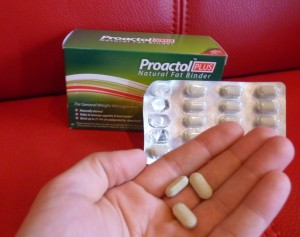Proactol Studies
Obesity is skyrocketing worldwide at an alarming rate, giving rise to major health issues such as heart disease, type two diabetes, stroke and cancer. Obesity is the result of an imbalance between energy intake and energy spending. Diet and exercise, pharmacological care and surgical interventions are common ways to treat weight issues.
While increase in energy expenditure and reduction of intake of calories is of big importance and needs to be followed evangelistically for one’s good health, common treatment approaches that are based totally on exercise and food restriction alone often fail due to poor compliance.
Pharmacological options,eg sibutramine, orlistat and phentermine, are commonly prescribed to assist weight loss efforts. However , despite the primary benefits, drug treatment is frequently linked with rebound weight, side effects and potential substance abuse.
similarly, surgical interventions involve dramatic permanen
t changes in a person’s ability to digest food and aren’t always suitable.
When traditional medicine fails to treat obesity successfully and without detrimental events, many folks seek cures in herbal medicine. Natural products with anti-obesity properties are receiving lots of attention in light of the worrying upward obesity trend and the regularly serious complications posed by medical drugs of chemical origin.
Proactol – A Natural medical Product
Proactol is a revolutionary patented fiber complex that is one hundred percent natural, made from the dried leaves of Opuntia ficus indica, a species of cactus ( prickly pear cactus ) known for its huge, sweet fruits called tunas or nopal. Traditionally, the leaves and fruits of the cactus Opuntia ficus indica have been used in the medicinal and cosmetic industry [1].
Early studies performed in animals that consumed fresh or dehydrated leaves of the plant proved that tunas reduced the levels of LDL-the bad cholesterol-by 34% without changing HDL-the good cholesterol-levels [2].
A medical herb made of the dehydrated leaves of the prickly pear cactus has been patented using the nom-de-plume NeOpuntia, which is the basis of the commercially known diet pill Proactol. NeOpuntia binds and stops absorption of lipids from the bowels, therefore minimizing the calorific contribution of fat to the overall energy content of food. What sets NeOpuntia aside from other herbal diet supplements is the clinical studies that have demonstrated its efficiency and safety.
The fat binding capacity of NeOpuntia has been evaluated in a bunch of trials conducted by InQpharm, as well as other independent laboratories





